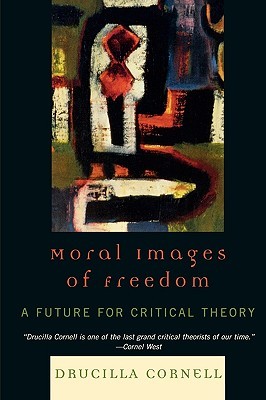
- We will send in 10–14 business days.
- Author: Drucilla Cornell
- Publisher: Rowman & Littlefield Publishers
- ISBN-10: 0847697932
- ISBN-13: 9780847697939
- Format: 16.1 x 22.7 x 1.4 cm, minkšti viršeliai
- Language: English
- SAVE -10% with code: EXTRA
Reviews
Description
Moral Images of Freedom resurrects the Kantian project of affirmative political philosophy and traces its oft-forgotten influences found in thinkers such as Martin Heidegger, Ernst Cassirer, Frantz Fanon, and Walter Benjamin. Drucilla Cornell responds to nihilistic claims about the empty purpose of critical theory in a world so utterly captured by violence in all of its worst forms: economic, social, political, and cultural. Cornell instead draws together a sweeping thread of hope in the varied symbolic forms of freedom persistent throughout the work of a broader range of critical theorists and addresses the burning challenge for such work to respond seriously to the need for a decolonization of critical theory itself and a sustained commitment to the possible future of socialism.
EXTRA 10 % discount with code: EXTRA
The promotion ends in 23d.03:50:54
The discount code is valid when purchasing from 10 €. Discounts do not stack.
- Author: Drucilla Cornell
- Publisher: Rowman & Littlefield Publishers
- ISBN-10: 0847697932
- ISBN-13: 9780847697939
- Format: 16.1 x 22.7 x 1.4 cm, minkšti viršeliai
- Language: English English
Moral Images of Freedom resurrects the Kantian project of affirmative political philosophy and traces its oft-forgotten influences found in thinkers such as Martin Heidegger, Ernst Cassirer, Frantz Fanon, and Walter Benjamin. Drucilla Cornell responds to nihilistic claims about the empty purpose of critical theory in a world so utterly captured by violence in all of its worst forms: economic, social, political, and cultural. Cornell instead draws together a sweeping thread of hope in the varied symbolic forms of freedom persistent throughout the work of a broader range of critical theorists and addresses the burning challenge for such work to respond seriously to the need for a decolonization of critical theory itself and a sustained commitment to the possible future of socialism.


Reviews